- Home
- Jack Higgins
Luciano's Luck Page 14
Luciano's Luck Read online
Page 14
‘Very possibly,’ Luciano said and glanced up.
Maria was smiling sadly at him from across the room.
Fifteen miles north in a small lost valley high in the Cammarat, Don Antonio Luca ate his evening meal alone, the windows to the terrace of the old rambling farmhouse open to the night. The long living room, though primitive in some respects with whitewashed walls and a stone floor, was comfortable enough with a log fire burning in the open hearth in one corner.
He sat at one end of a long dark oak table and ate sparingly of the dishes which were laid before him. Narbe di San Paolo, ravioli filled with sugar and richotta cheese and fried, and cannolo, that most famous of all Sicilian sweets. He reached for the wine bottle and, finding it empty, rang a hand bell.
The woman who entered was no more than thirty, a shapely, fleshy peasant with wide hips that stretched the conventional black cotton dress to its extremity. Her hair was night-black and fastened into a tight bun at the nape of her neck. Her skin was olive, the lines just beginning to show, and she had kind eyes.
‘Another bottle, Katerina,’ he said.
She went out without a word and he lit a cigar, got up and went and stirred the fire. He was sixty-five, the hair and carefully trimmed beard iron grey, a tall man still, the shoulders only slightly stooped with age.
The face was the most remarkable feature. Ruthlessness, pride, arrogance, but also a blazing intelligence. He wore the rough clothes of a mountain farmer, corduroy trousers, waistcoat, red flannel shirt, and yet there was a curious impression of elegance to him still, a suggestion of the aristocrat in gamekeeper's clothing that was strange in a man who had started life as a sharecropper's son.
Katerina came back with a fresh bottle of wine. ‘Mario's here.’
‘Good. Send him in and bring coffee.’
He stirred the logs with a foot and turned as the door opened again.
The man who entered was in his midfifties and had the face of a confident gladiator who had survived the arena. A small, greying man with an engaging presence; he could still smile as he killed, and he had killed many times on the orders of his Capo. Mario Sciara, Antonio Luca's strong right arm.
Luca said,‘Well?’
The door opened again and Katerina came in with the coffee.
Sciara said, ‘They are here, Don Antonio.’
‘Luciano?’
‘Yes.’
‘And my granddaughter? Where are they now?’
‘I don't know exactly. They were at the villa of the Contessa di Bellona but there was trouble.’
‘What kind of trouble?’
Katerina paused in the act of pouring coffee, waiting. Sciara said, ‘You know how much the Communists have worried about increasing Mafia involvement in the resistance movement. When they heard Luciano was coming, they didn't like it. They tried to give him the business.’
‘Who was it?’
‘That sheepfarmer from Bellona, Russo, and some boy or other. Luciano took care of it, as I understand it. They're both dead.’
‘So, his hand hasn't lost its cunning. And my granddaughter? She was there?’
‘Yes, Capo.’
Luca's eyes flared and when he picked the bottle of Marsala up from the table, his hand shook. ‘Infamita. To do such a thing. Luciano can take his chances, but to place my granddaughter's life in jeopardy.’ He emptied the glass in one quick swallow. ‘There were others involved?’
‘Mori, the schoolmaster.’
‘That bastard. Another Red. He pays, Mario, in full.’
‘Already taken care of, Capo. Vito Barbera has seen to it on your behalf.’
‘Good.’ Luca nodded. ‘One can always rely on Vito.
Now, to the other business. Is the Englishman, Carter,
with them?’
‘Yes, Capo.’
‘Excellent I like Carter.’ He turned to Katerina. ‘When he comes we can play bridge again with a dummy hand, but better than nothing.’
‘You will see them?’
‘Of course. They can come here. Make the necessary arrangements with Padre Giovanni. Now, have your coffee and tell me how the war goes.’
Later, standing in the darkness of his bedroom with the window open to the terrace, he watched lightning flicker over the mountain. Katerina moved in from the other room and stood beside him. She wore a robe of heavy silk and when his arm went around her, his hand cupped her left breast, his fingers stroking the nipple erect.
‘You are unhappy, Antonio?’
‘Can you always be so certain?’
‘Of course. It is Maria, I think. You do not wish her to come? Why not? She is of your own flesh. Your only surviving blood kin. It is not natural.’
He sighed. ‘How can I explain to you? As a child, I adored her and she loved me totally. She never knew her father, God rest him. I was the only man in her life. Then that day, that terrible day when she and her mother got in the car…’ his voice faded.
‘My poor Antonio.’ She rested a hand on his shoulder.
‘She turned from me, with words of hatred on her lips.’ He shook his head. ‘No, my love, when she comes now, it is as if we turn over an old stone and expose the corruption that lies underneath.’
‘No, Antonio. She comes with love I am sure.’
He laughed harshly. ‘Is Antonio Luca a fool? Is this how he has survived all these years? She comes because I have refused to help the Americans in this coming invasion. She comes because they hope she will be able to change my mind. If it were not for that, she would not have come at all.’
There was a terrible desolation in his voice and she turned into him, holding him tight. ‘Come to bed, Antonio.’
‘Soon, caro, very soon.’ He kissed her hair and pushed her gently away.
When he moved out on the terrace he could smell the mimosa, heavy and clinging on the damp air. The whole electric world waited for a sign. It came. The heavens opened and it started to rain.
13
Koenig was standing at the window of his office at the police barracks in Agrigento shortly after dawn, when Suslov and his Ukrainians drove into the courtyard below. As Koenig watched, the door opened behind him and Rudi Brandt came in with a cup of coffee.
Koenig nodded down into the courtyard as Detweiler was dragged from the kubelwagen. He fell to his knees and one of the Ukrainians kicked him. Then two of them ran him across the yard towards the entrance of the old police captain's house which Meyer was using as his headquarters.
‘More work for the undertaker,’ Koenig said.
‘So it would appear, Colonel.’
‘Find out who he is and report back to me.’ Brandt went out at once and Koenig opened the window. The storm of the previous night seemed to have blown itself out, but rain drifted against the window in a fine spray. He felt old beyond his years, unaccountably depressed, as he sipped his coffee and watched Rudi Brandt cross the courtyard below.
Detweiler, his wits sharpened considerably by fear, stood in front of Meyer's desk and waited. The Major ignored him, watching while Suslov took various items from the rucksack: ammunition clips, several grenades, chocolate Krations. He laid them down beside the M1 and the Colt automatic.
‘So?’ Meyer said.
‘The weapons would appear to be brandnew, Major.’
Meyer picked up Detweiler's false papers. ‘Who have we here?’ He spoke without looking up. ‘Mario Brazzi, born Palermo, 1917. It says here you are a shepherd by profession?’
‘Yes, sir,’ Detweiler said, keeping his head down.
‘Employed by whom?’
Detweiler stayed with the story Carter had outlined for him at Maison Blanche. ‘Times are hard. I move from place to place. A few days here, a few days there.’
‘Discharged from the Fifteenth Infantry Brigade in February as a result of a chest wound received in North Africa.’
‘That's right, sir.’
Meyer nodded and Suslov put down the M1, reached across and tore open his shirt. The
great raised scar of a gunshot wound was clearly visible on the left side of Detweiler's chest, souvenir of the illfated Dieppe landings.
Meyer sat back. ‘We would appear to have a parodox. Mario Brazzi, wounded veteran and honest shepherd, found wandering the hills with brand new American weapons, American chocolate and Krations.’ He turned to Suslov. ‘What would that suggest to you, Obersturmführer?’
‘A supply drop to partisans in the area, probably very recent, Major, judging by the carbine and the other items.’
Detweiler pulled out all the stops to stay in character. ‘I'm an honest man, I swear it. I stayed the night in a shepherd's hut on the other side of Viterba, high in the mountains. I found all this stuff hidden under the straw.’
Meyer grimaced and Suslov picked up the M1 and drove the butt into the pit of Detweiler's stomach with all his strength. Detweiler lay on his face, retching.
Meyer said. ‘Let's try again.’
They hauled him to his feet, and at that moment the door opened and Koenig entered. He wore a camouflaged jump jacket over his uniform, his old NCO's fieldcap slanted over one eye.
‘Ah, there you are, Meyer,’ he said. ‘I'm just off.’ He paused, suitably surprised. ‘What's all this?’
Meyer had long since learned to control his anger in Koenig's presence.
He jumped to his feet. ‘A partisan, or so we think, Colonel. Suslov picked him up in the mountains with various items of American equipment. It would appear some sort of drop's taken place in that area recently.’
Koenig picked up the Colt, hefted it and put it back on the desk. ‘And what does he have to say?’
‘That he found all this hidden under the straw in a shepherd's hut.’
Koenig looked Detweiler over and the sergeant, supported by the two Ukrainians, kept his head down, trying to catch his breath.
Koenig said, ‘It's possible, I suppose.’
Meyer was astonished. ‘Colonel?’
‘Put him in a cell, give him something to eat and twenty-four hours to think about his situation. I'm going up to command headquarters in Palermo, but I'll be back some time tomorrow. I'll see him then.’
Meyer smiled slightly. ‘As you say, Colonel.’
Koenig walked to the door and opened it. He turned, ‘And I'd like to find him still in one piece. Do impress that on your men. They have a tendency to get a trifle overenthusiastic on these occasions and that would not please me at all.’
‘Certainly, Colonel, that goes without saying.’
The door closed and Suslov said, ‘This is crazy, Major. Just let me have my way with this bastard.’
Meyer shook his head. ‘When the right moment comes I intend to have Koenig's head, believe me, but I'm not going to jeopardize the situation by a conflict over something like this. It isn't important enough.’
‘So what do we do with this one?’
As Detweiler couldn't speak German he had been unable to follow what was going on. He waited fearfully, trying to play the cringing peasant, with only the expression on Meyer's face giving him a clue as to what was going on.
Meyer said thoughtfully, ‘Twentyfour hours to think things over, the Colonel said. Very well, let's give him just that. Take him down to twentytwo.’
‘Zu Befehl, Sturmbannführer.’ Suslov nodded to his men and they dragged Detweiler out.
They descended stone steps, Suslov leading the way followed by the two Ukrainians holding Detweiler between them.
Detweiler's mind worked furiously, assessing the possibilities. He'd been prepared for this sort of situation in training, of course. Solitary confinement that's what they usually started with, and in total darkness. He remembered what the psychiatrist lecturing to them had said. Sensory deprivation leading to total alienation of the individual. Okay, but all he had to do was hang on because he knew something these bastards didn't. That the invasion was due any day now.
They paused outside a cell door and Suslov unlocked it. The stench was appalling. When Detweiler was pushed forward he saw, as the light flooded in, that there were twelve or more filthy and ragged creatures huddled together on the floor in that confined space.
Suslov nodded and the two Ukrainians started to rip off Detweiler's clothes. When he was naked, they handcuffed his hands behind him. Detweiler had never felt so vulnerable in his life as Meyer came down the stairs and walked along the passage. He looked Detweiler over calmly, then moved into the entrance of the cell.
‘Now listen to me,’ he said in his bad Italian. ‘This man doesn't lie down, doesn't sit, gets no rest whatsoever. And he isn't to sleep when standing. You take turns to make sure my orders are carried out. If you fail me, no water, no food for one week. Just each other.’ He nodded to Suslov who shoved Detweiler down into the cell and slammed the door. Detweiler fell over a prostrate body, aware of the stench of the place and kicked out frantically.
There were hands everywhere, crawling all over him, pulling him to his feet. Someone said hoarsely, ‘I don't know who you are, friend, and we couldn't care less. It's dog eat dog in here. That means we do what that Gestapo bastard wants and you do what we want.’
Detweiler stood there in the darkness, suddenly terribly afraid. ‘Listen to me, for God's sake,’ he began.
The same hoarse voice said, ‘God has nothing to do with it, so be a good boy and do exactly as you're told.’
In late spring and early summer, when the first real heat begins, violent thunderstorms are common in the Sicilian high country. It started to rain again as Savage and Rosa followed a track along a ridge between two mountain peaks.
He said, ‘Does it always rain this much in Sicily?’
She laughed. ‘No, this is not usual.’
Not that Savage minded. Some people were rainwalkers by nature. It gave them a lift just to be out in the stuff. The rainstorm which broke over the Cammarata that morning worked its usual magic on him. The earth came alive and there was a freshness to everything.
She took his arm. ‘One thing I don't understand. Last night when you were making love to me.’
‘Which time was that.’ He tried to keep his face straight. ‘The third or fourth?’
‘No, early this morning, when you woke from sleep. You kept apologizing for being no good. You said you were much better at shooting people.’
‘I don't remember,’ he lied.
‘But you are a wonderful lover. You pleased me many times.’
He was thoroughly embarrassed. ‘You shouldn't talk like that.’
‘Like what?’ she demanded. ‘What did I say that was so terrible?’
‘Let it go,’ he said. ‘Just let it go.’
She pulled him round and looked up at his face, grave beneath the peak of the old tweed cap. ‘I don't know what they've been telling you all these years, but you are not the man they think you are.’ She reached up and touched his face gently. ‘Or the man they have told you to be.’
He put an arm around her and pulled her close. ‘How come all this wisdom in one so young?’
‘Because I was a whore,’ she said harshly. ‘In Palermo. But you knew this about me, I think?’
He was filled with a sense of overwhelming affection, leaned down and kissed her gently.
‘Come on,’ he said. ‘We'd better make tracks for the monastery and find out what's happened to the others.’
Luciano and Maria walked quietly together through the morning rain. She said, ‘I wish I hadn't had to leave that child.’
‘You've provided one miracle to start with,’ he said. ‘It'll survive. Bound to after such a start. Anyway, I thought you were in the faith business?’
‘And you're not?’
‘I deal in facts.’
‘You don't hate the Germans?’
‘Do you?’
‘I hate some of the things they've done.’
‘Life's a whole lot simpler than that for me.’
‘You reject any kind of personal commitment.’
Luciano shrugged. �
��I know what I am. That tells me who I am. I like you, so I'm on your side.’
‘And the Germans?’
‘I haven't even seen one yet.’
‘It's a game to you, all of it, isn't it, Mr Luciano, just like Mafia?’ She shook her head. ‘With your rules like some game for schoolboys. Your omerta. Manliness, honour, solve your own problems and kill your enemy facetoface.’
‘Everyone plays games,’ he said. ‘It helps you get by in life, haven't you noticed that? Flickering candles, medieval robes, plainsong, a man dressed in a woman's robe to wash your spirit clean at frequent intervals? Now what in hell am I supposed to make of that?’
Before she could reply they emerged from the trees and saw a small village in the valley below.
‘The place Solazzo mentioned,’ she said. ‘Viterba.’
Luciano nodded. ‘Okay, let's go down and take a look. See if I can find this guy, Verda, that Solazzo spoke of.’
It was a poor sort of place. Several streets slanted down to a square, mainly open sewers if the stench was anything to go by. Thin children played listlessly in the dirt, stopping to gaze apathetically as Luciano and Maria went by. There was a wine shop, an awning stretched over a few tables outside, rain pouring over the edge.
Luciano said to Maria, ‘Wait here, I'll see if he's inside.’
She sat at one of the tables and he went in. It was very dark, a few tables only and a cracked marble bar with bottles behind. There were no customers, only a short, thickset man in open-necked shirt and soiled white apron, who leaned on the bar reading a magazine.
He looked up warily. ‘Yes?’
‘Mario Solazzo sent me.’
‘So?’
‘I'm trying to get to the Franciscans at Crown of Thorns, He said you'd put us on the way.’
‘Us?’
‘I have a woman with me.’ There was a long pause and Luciano said patiently, ‘You are Verda, aren't you? I was told you were of the Society.’
Verda stared at him blankly and his hand was under the bar now. ‘So?’
Luciano said, ‘I'm going to take something out of my right hand pocket so don't shoot me. It isn't a gun.’
He produced a yellow silk handkerchief and unfolded it. Verda looked down at the black L and his eyes widened. His hand emerged, holding a Beretta automatic of the type issued to Italian officers, and he placed it carefully on the bar.

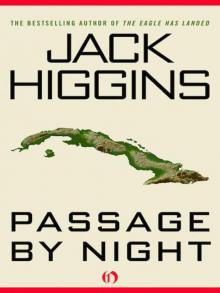 Passage by Night (v5)
Passage by Night (v5)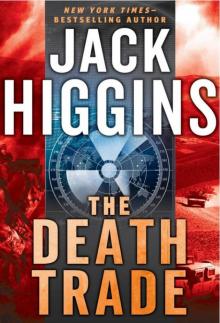 The Death Trade sd-20
The Death Trade sd-20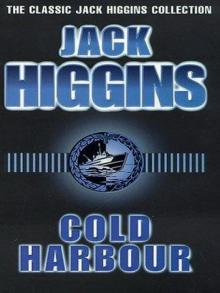 Cold Harbour
Cold Harbour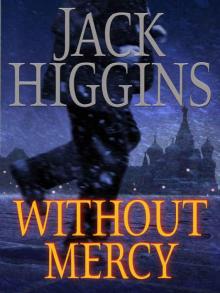 Without Mercy
Without Mercy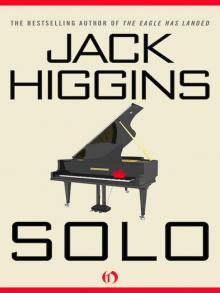 Solo (Aka the Cretan Lover)(1980)
Solo (Aka the Cretan Lover)(1980) First Strike
First Strike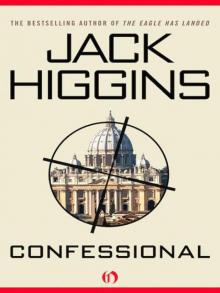 Confessional - Devlin 03 (v5)
Confessional - Devlin 03 (v5)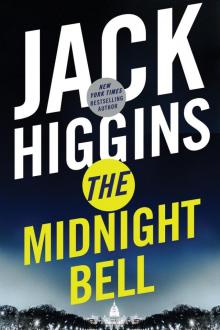 The Midnight Bell
The Midnight Bell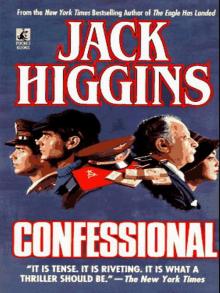 Confessional
Confessional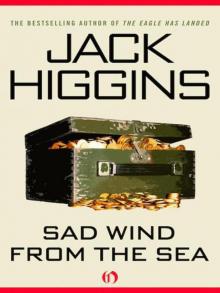 Sad Wind from the Sea (v5)
Sad Wind from the Sea (v5)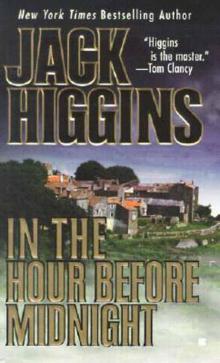 In The Hour Before Midnight aka The Sicilian Heritage
In The Hour Before Midnight aka The Sicilian Heritage Wrath of the Lion
Wrath of the Lion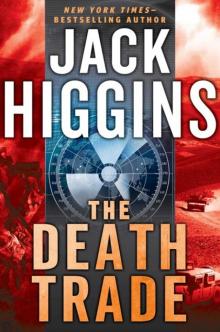 SDillon 20 - The Death Trade
SDillon 20 - The Death Trade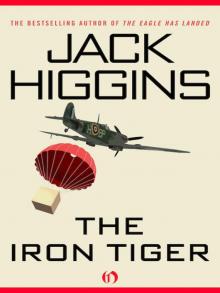 the Iron Tiger (1974)
the Iron Tiger (1974)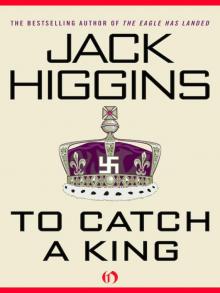 To Catch a King
To Catch a King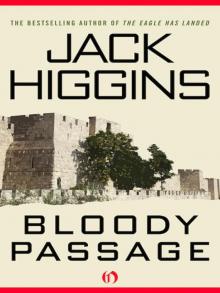 Bloody Passage (1999)
Bloody Passage (1999)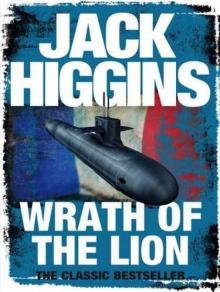 Wrath of the Lion sd-8
Wrath of the Lion sd-8 Sharp Shot
Sharp Shot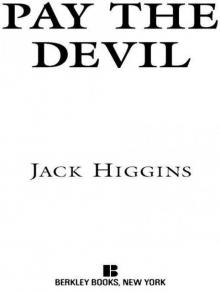 Pay the Devil (v5)
Pay the Devil (v5) A Devil Is Waiting
A Devil Is Waiting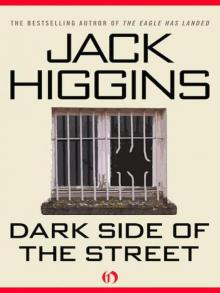 Dark Side of the Street - Simon Vaughn 01 (v5)
Dark Side of the Street - Simon Vaughn 01 (v5)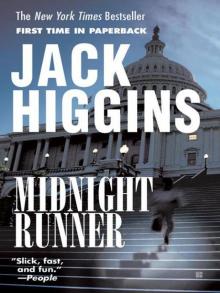 Midnight Runner - Sean Dillon 10
Midnight Runner - Sean Dillon 10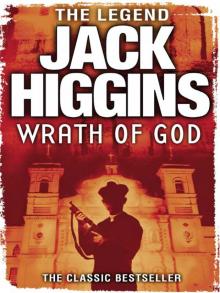 Wrath of God
Wrath of God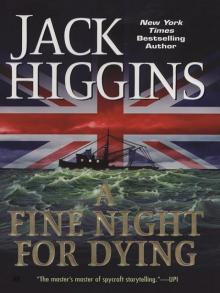 A Fine Night for Dying
A Fine Night for Dying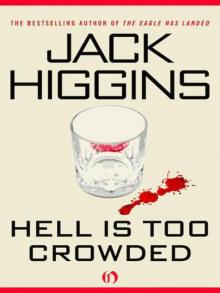 Hell Is Too Crowded v5)
Hell Is Too Crowded v5)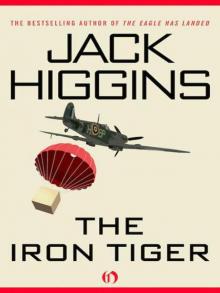 the Iron Tiger (v5)
the Iron Tiger (v5)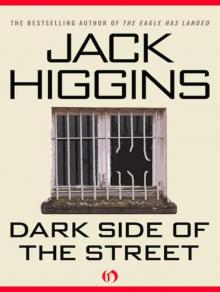 Dark Side of the Street pc-5
Dark Side of the Street pc-5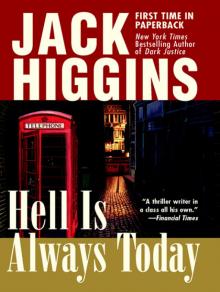 Hell Is Always Today
Hell Is Always Today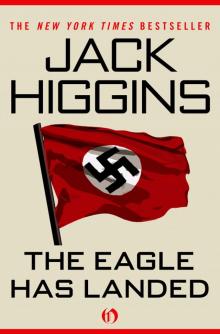 Eagle Has Landed
Eagle Has Landed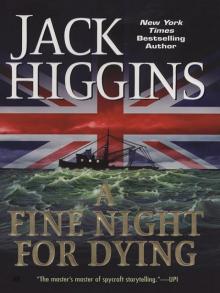 A Fine Night for Dying pc-6
A Fine Night for Dying pc-6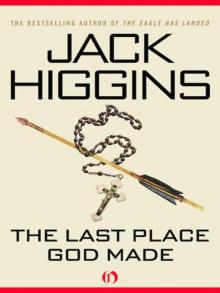 the Last Place God Made (v5)
the Last Place God Made (v5)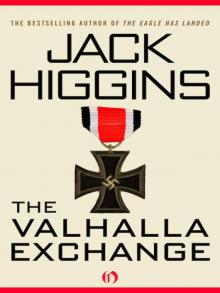 the Valhalla Exchange (1976)
the Valhalla Exchange (1976)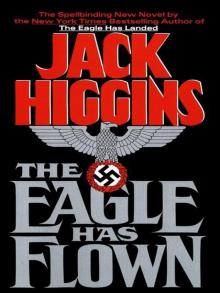 The Eagle Has Flown
The Eagle Has Flown Sure Fire
Sure Fire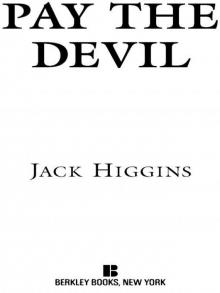 Pay the Devil (1999)
Pay the Devil (1999)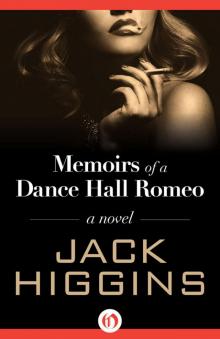 Memoirs of a Dance Hall Romeo
Memoirs of a Dance Hall Romeo![a Prayer for the Dying (1974)[1] Read online](http://i1.bookreadfree.com/i1/04/02/a_prayer_for_the_dying_19741_preview.jpg) a Prayer for the Dying (1974)[1]
a Prayer for the Dying (1974)[1]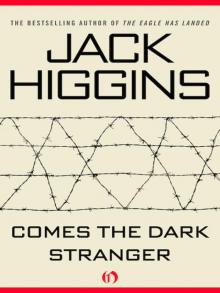 Comes the Dark Stranger
Comes the Dark Stranger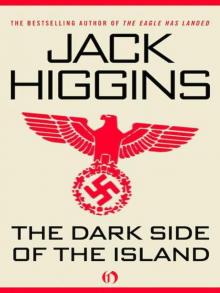 Dark Side Of the Island (v5)
Dark Side Of the Island (v5)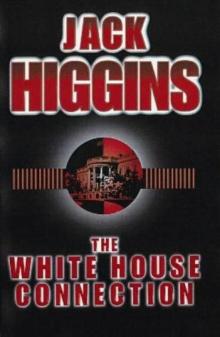 The White House Connection sd-7
The White House Connection sd-7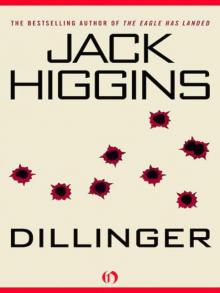 Dillinger (v5)
Dillinger (v5) Eye of the Storm
Eye of the Storm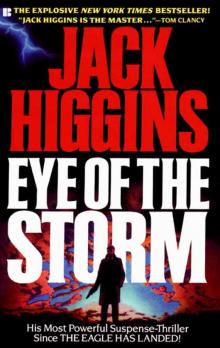 Eye Of The Storm aka Midnight Man
Eye Of The Storm aka Midnight Man A Darker Place
A Darker Place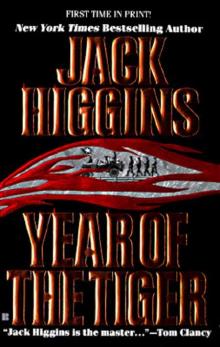 Year Of The Tiger
Year Of The Tiger Death Run
Death Run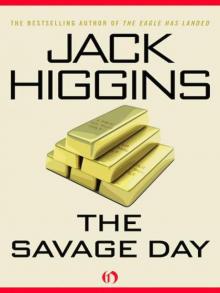 the Savage Day - Simon Vaughn 02 (v5)
the Savage Day - Simon Vaughn 02 (v5)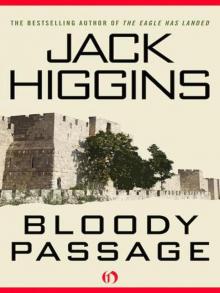 Bloody Passage (v5)
Bloody Passage (v5)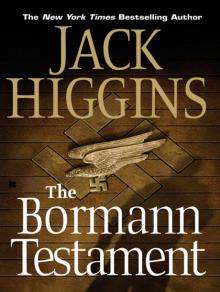 The Bormann Testament
The Bormann Testament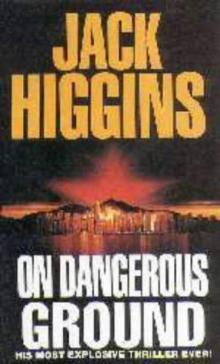 On dangerous ground sd-3
On dangerous ground sd-3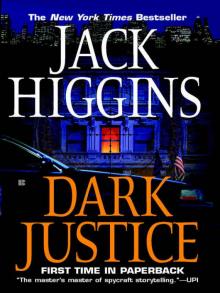 Dark Justice
Dark Justice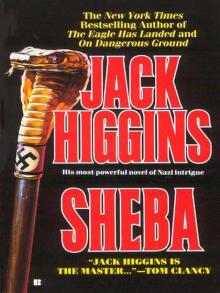 Sheba
Sheba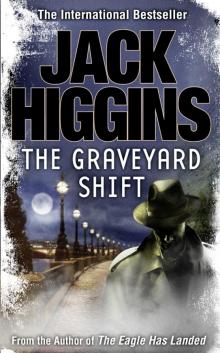 The Graveyard Shift
The Graveyard Shift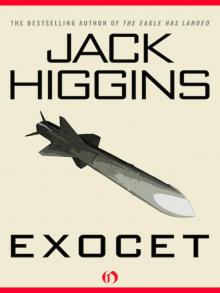 Exocet (1983)
Exocet (1983) The Wolf at the Door
The Wolf at the Door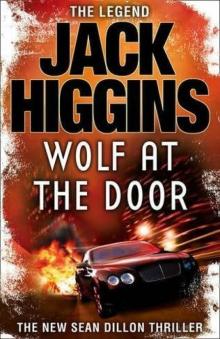 The wolf at the door sd-17
The wolf at the door sd-17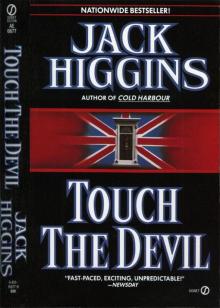 Touch The Devil
Touch The Devil The President’s Daughter
The President’s Daughter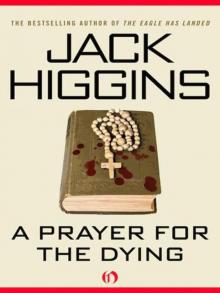 A Prayer for the Dying (v5)
A Prayer for the Dying (v5)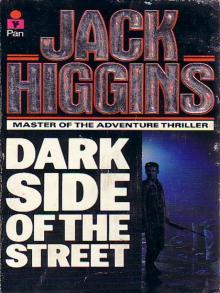 Dark Side Of The Street
Dark Side Of The Street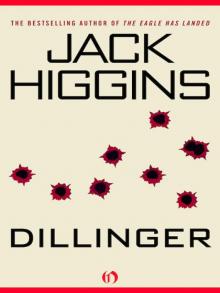 Dillinger (1983)
Dillinger (1983)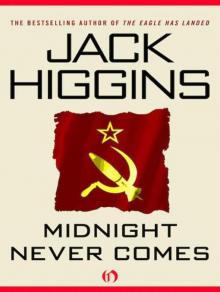 Midnight Never Comes pc-4
Midnight Never Comes pc-4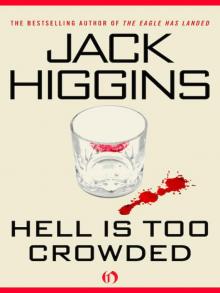 Hell Is Too Crowded (1991)
Hell Is Too Crowded (1991)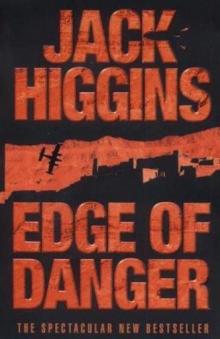 Edge of Danger sd-9
Edge of Danger sd-9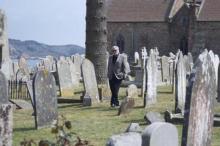 The Thousand Faces of Night (v5)
The Thousand Faces of Night (v5)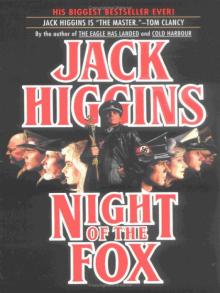 Night Of The Fox
Night Of The Fox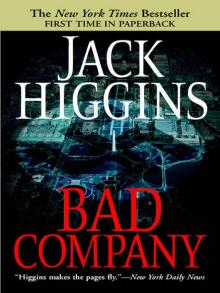 Bad Company
Bad Company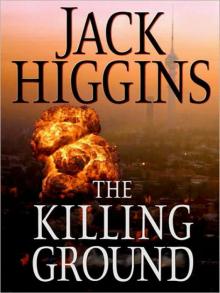 The Killing Ground
The Killing Ground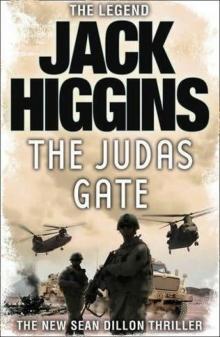 The Judas gate sd-18
The Judas gate sd-18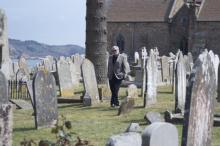 The Thousand Faces of Night (1961)
The Thousand Faces of Night (1961)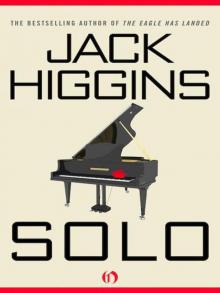 Solo (Aka the Cretan Lover) (v5)
Solo (Aka the Cretan Lover) (v5)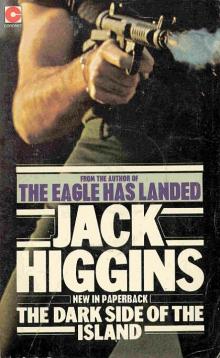 The Dark Side Of The Island
The Dark Side Of The Island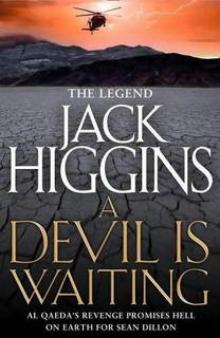 A Devil is vaiting sd-19
A Devil is vaiting sd-19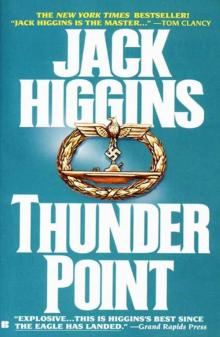 Thunder Point
Thunder Point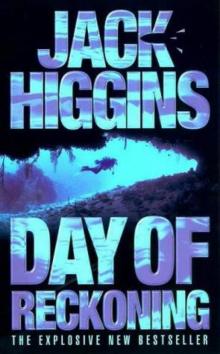 Day of Reckoning sd-8
Day of Reckoning sd-8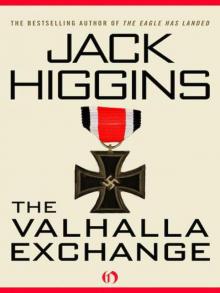 the Valhalla Exchange (v5)
the Valhalla Exchange (v5)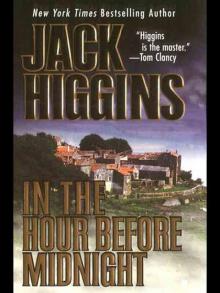 In the Hour Before Midnight
In the Hour Before Midnight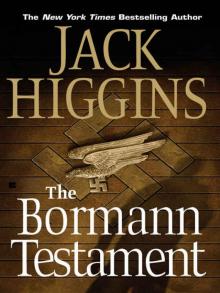 The Bormann Testament (The Testament of Caspar Schultz)
The Bormann Testament (The Testament of Caspar Schultz) The Judas Gate
The Judas Gate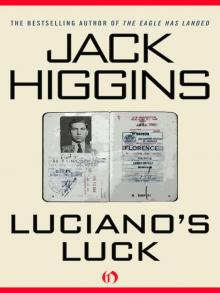 Luciano's Luck
Luciano's Luck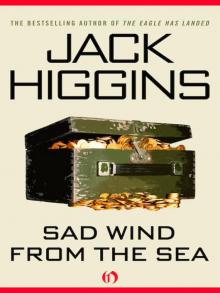 Sad Wind from the Sea (1959)
Sad Wind from the Sea (1959)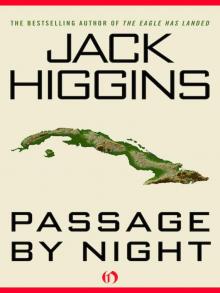 Passage by Night (1987)
Passage by Night (1987)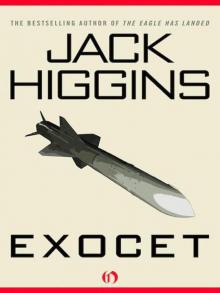 Exocet (v5)
Exocet (v5)